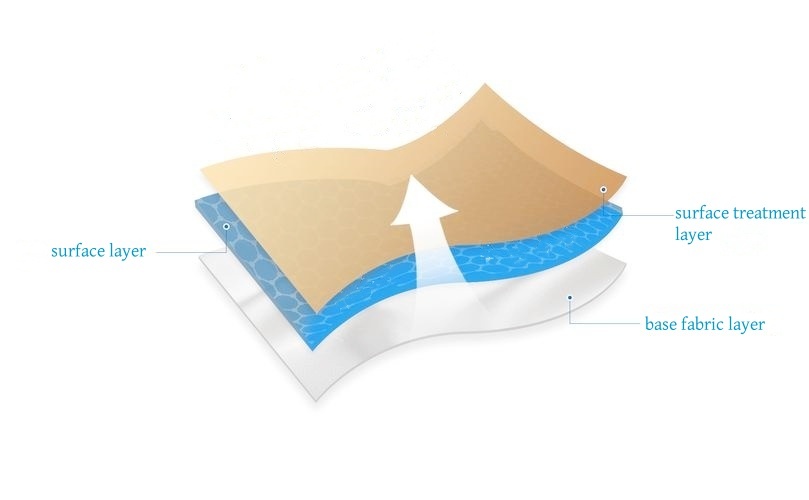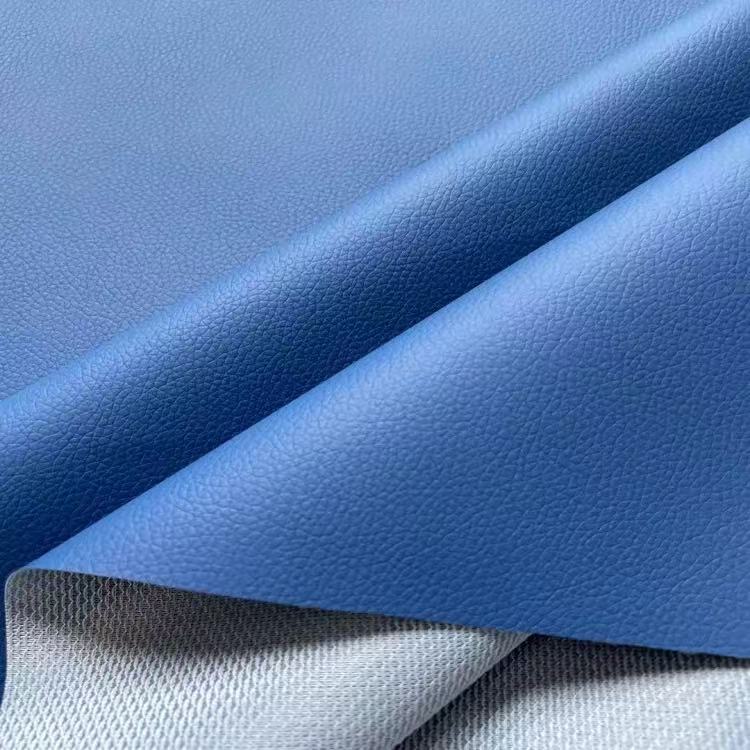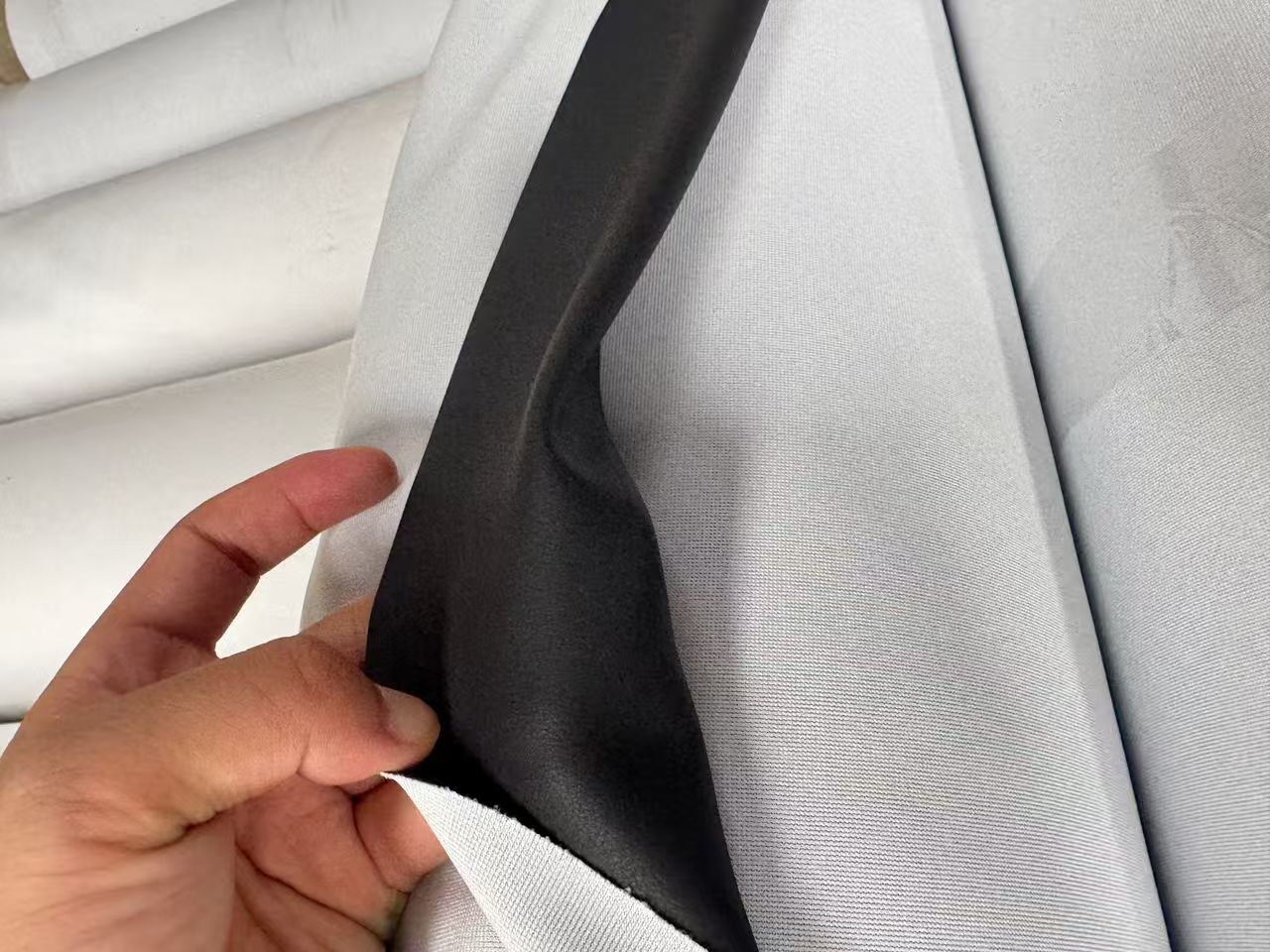What is Synthetic Leather?
Do you have concerns about the quality of synthetic leather products? Fear not! We’re here to give you the straight scoop so you can make an educated decision.
Synthetic leather is an engineered material designed as an alternative to natural leather. It is produced by combining synthetic resins, such as PVC (Polyvinyl Chloride) or PU (Polyurethane), with a fabric substrate through processes like coating and laminating.
While synthetic leather replicates the appearance, texture, and performance of genuine leather, it also offers unique advantages, including lower production costs, a diverse range of colors and textures, and greater environmental friendliness. Due to these benefits, synthetic leather is extensively used in various industries, including apparel, footwear, furniture, and automotive interiors.
Table of Contents
Is Synthetic Leather Good Quality?

Yes, synthetic leather has significantly improved in quality due to advancements in technology and manufacturing processes. High-quality synthetic leather can be just as good as real leather in terms of appearance, durability, longevity, and feel. It offers consistency, a wide variety of colors and textures, and practical benefits like water repellency and ease of maintenance.
What Is Synthetic Leather Made Of?

Synthetic leather is primarily made from synthetic resins such as PVC and PU, combined with a fabric base. Here’s a brief overview
- PVC Synthetic Leather: Made from polyvinyl chloride (PVC), it’s known for its durability and water resistance, making it ideal for furniture and building materials.
- PU Synthetic Leather: Made from polyurethane (PU), it offers better softness and breathability, suitable for clothing and footwear.
- Microfiber Synthetic Leather: Uses ultra-fine fibers to closely mimic genuine leather’s texture and performance.
Can Synthetic Leather Get Wet?
Yes, synthetic leather is generally water-resistant because it’s a synthetic product. It can handle regular moisture and spills without immediate deterioration. However, prolonged exposure to water or lack of proper care can affect its lifespan. It’s advisable to wipe off spills promptly and keep the material dry when possible.
Is Synthetic Leather Affordable?
Compared to real leather, synthetic leather is much more cost-effective due to lower production costs and economies of scale. It’s an excellent option for consumers and manufacturers who seek quality and aesthetics without the higher price tag associated with genuine leather.
Can You Clean Synthetic Leather?
Yes, synthetic leather is easy to clean and maintain. For regular maintenance, you can use a damp cloth to wipe it down. For deeper cleaning, use a mild soap and water solution. Avoid harsh chemicals that could damage the material. With proper care, synthetic leather products can remain looking good and last a long time.
Does Synthetic Leather Mean Fake?
The term “synthetic” indicates that the material is man-made, not that it’s inferior or a cheap knockoff. Synthetic leather is a legitimate and valuable material in its own right. It serves as an ethical alternative to real leather by reducing reliance on animal products. Additionally, it’s often produced using more environmentally friendly processes. Learn more about ethical fashion.
A Brief History of Synthetic Leather
Synthetic leather originated in the early 20th century as a response to the scarcity of natural leather and growing environmental and ethical concerns. The development of PVC and PU materials in the mid-20th century revolutionized the industry, offering better performance and lower costs. Today, the synthetic leather industry is global, focusing on sustainability and innovation.
Applications of Synthetic Leather
 Fashion: Synthetic leather is widely used in the fashion industry, including clothing, footwear, handbags, and various accessories, offering versatility in design and a sustainable alternative to natural leather.
Fashion: Synthetic leather is widely used in the fashion industry, including clothing, footwear, handbags, and various accessories, offering versatility in design and a sustainable alternative to natural leather.- Furniture: Due to its durability and ease of maintenance, synthetic leather is ideal for sofas, chairs, and other upholstery applications, providing an aesthetic and cost-effective solution for residential and commercial settings.
- Automotive Interiors: Synthetic leather is extensively used in automotive interiors, such as seats, dashboards, and trim, due to its robustness, comfort, and customization options.
- Other Industries: The use of synthetic leather extends to diverse sectors, including electronics casings, sports equipment, and specialty products, benefiting from its adaptability and range of properties.
Future Trends in Synthetic Leather

- Environmental Sustainability: Increasing emphasis on environmentally friendly materials and green production processes is shaping the future of synthetic leather, focusing on renewable resources and reducing harmful emissions to meet rising consumer expectations for sustainable products. Explore more about sustainable materials.
- Technological Innovation: Technological advancements in materials science are enhancing synthetic leather’s performance, including improved durability, comfort, and functionality. Innovations like nanotechnology and smart materials are significantly transforming its properties and application potential.
- Customization: The growing demand for personalized products is driving significant innovation in synthetic leather, enabling manufacturers to provide customized options in terms of textures, colors, and finishes, tailored to meet individual consumer preferences.
- Emerging Applications: With continuous improvements in synthetic leather’s performance, its application is expanding into new fields, including wearable technology, medical devices, and aerospace, creating new growth opportunities and potential markets.
Conclusion
Synthetic leather has become an indispensable material in various industries thanks to its quality, affordability, and ethical advantages. Ongoing advancements in technology and sustainable production practices position synthetic leather as a compelling alternative to genui
Request A Quote for Your Leather Projects!
Share the post now:
You may also find these topics interesting

What Do Most Buyers Misjudge When Comparing Faux Leather Prices?
Many buyers misjudge faux leather prices by comparing numbers instead of specifications. This article explains how thickness, backing fabric, and end use determine real synthetic leather value.

How to Pair “Rexine Leather” Inquiries with the Right Synthetic Leather Solution?
Many buyers still ask for “rexine leather.” This article explains what they usually mean, why the term causes confusion, and how we match it with the right synthetic leather solution.

